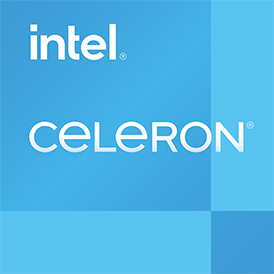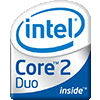
Intel Celeron N3150 Benchmark, Test and specs
Last updated:
The Intel Celeron N3150 was released in Q2/2015 and has 4 cores. The processor can process 4 threads simultaneously and uses a mainboard with the socket BGA 1170. In the Geekbench 5 benchmark, the Intel Celeron N3150 achieved a result of 218 points (single-core) or 765 points (multi-core).

| Name: | Intel Celeron N3150 |
|---|---|
| Family: | Intel Celeron (165) |
| CPU group: | Intel Celeron J3000/N3000 (10) |
| Architecture: | Braswell |
| Segment: | Mobile |
| Generation: | 8 |
| Predecessor: | -- |
| Successor: | -- |
CPU Cores and Base Frequency
The Intel Celeron N3150 has 4 cores. The clock frequency of the Intel Celeron N3150 is 1.60 GHz (2.08 GHz). An initial performance assessment can be made using the number of CPU cores.
| CPU Cores / Threads: | 4 / 4 |
|---|---|
| Core architecture: | normal |
| Cores: | 4x |
| Hyperthreading / SMT: | No |
|---|---|
| Overclocking: | No |
| Frequency: | 1.60 GHz |
| Turbo Frequency (1 Core): | 2.08 GHz |
| Turbo Frequency (4 Cores): | 2.08 GHz |
Internal Graphics
The Intel Celeron N3150 has an integrated graphics that the system can use to efficiently play back videos. The Intel Celeron N3150 has the Intel HD Graphics 400 installed, which has 12 streaming multiprocessors (96 shaders).
| GPU name: | Intel HD Graphics 400 |
|---|---|
| GPU frequency: | 0.32 GHz |
| GPU (Turbo): | 0.64 GHz |
| Compute units: | 12 |
| Shader: | 96 |
| Hardware Raytracing: | No |
| Release date: | Q1/2015 |
| Max. displays: | 3 |
|---|---|
| Generation: | 8 |
| Direct X: | 12 |
| Technology: | 14 nm |
| Max. GPU Memory: | 8 GB |
| Frame Generation: | No |
Hardware codec support
Processors with integrated graphics can process video codecs faster. Support for modern codecs can significantly increase system efficiency during video playback.
| h265 / HEVC (8 bit): | No |
|---|---|
| h265 / HEVC (10 bit): | No |
| h264: | Decode / Encode |
| VP8: | Decode |
| VP9: | No |
| AV1: | No |
|---|---|
| AVC: | Decode / Encode |
| VC-1: | Decode |
| JPEG: | Decode |
Memory & PCIeThe Intel Celeron N3150 supports a maximum of 8 GB memory. Depending on the mainboard, the processor can use a maximum of 2 (Dual Channel) memory channels. This results in a maximum bandwidth of the main memory of 25.6 GB/s. |
|
| Memory type: | Memory bandwidth: |
|---|---|
| DDR3L-1600 | 25.6 GB/s |
| Max. Memory: | 8 GB |
| Memory channels: | 2 (Dual Channel) |
| ECC: | No |
| PCIe: | 2.0 x 4 |
| PCIe Bandwidth: | 2.0 GB/s |
Thermal ManagementThe Intel Celeron N3150 has a TDP of 6 W. Based on the TDP, the system manufacturer can and must adapt the cooling solution to the processor. |
|
|---|---|
| TDP (PL1 / PBP): | 6 W |
| TDP (PL2): | -- |
| TDP up: | -- |
| TDP down: | 4 W |
| Tjunction max.: | 90 °C |
Technical details
Modern production reduces the waste heat of a processor and increases its efficiency. The Intel Celeron N3150 is made in 14 nm and has 2.00 MB cache.
| Technology: | 14 nm |
|---|---|
| Chip design: | Monolithic |
| Socket: | BGA 1170 |
| L2-Cache: | -- |
| L3-Cache: | 2.00 MB |
| AES-NI: | Yes |
| Operating systems: | Windows 10, Linux |
| Virtualization: | VT-x, VT-x EPT |
|---|---|
| Instruction set (ISA): | x86-64 (64 bit) |
| ISA extensions: | SSE4.1, SSE4.2 |
| Release date: | Q2/2015 |
| Release price: | -- |
| Part Number: | -- |
| Documents: | Technical data sheet |
Rate this processor
Benchmark results

The benchmark results for the Intel Celeron N3150 have been carefully checked by us. We only publish benchmark results that have been created by us or that have been submitted by a visitor and then checked by a team member. All results are based on and fullfill our benchmark guidelines.
Geekbench 5, 64bit (Single-Core)
Geekbench 5 is a cross plattform benchmark that heavily uses the systems memory. A fast memory will push the result a lot. The single-core test only uses one CPU core, the amount of cores or hyperthreading ability doesn't count.

|
Intel Celeron J3160
4C 4T @ 2.24 GHz |
||

|
Intel Pentium 957
2C 2T @ 1.20 GHz |
||

|
Intel Celeron N3050
2C 2T @ 2.16 GHz |
||
|
|
Intel Celeron N3150
4C 4T @ 2.08 GHz |
||

|
Intel Pentium 2129Y
2C 2T @ 1.10 GHz |
||

|
Intel Pentium J2850
4C 4T @ 2.67 GHz |
||

|
Intel Celeron N2940
4C 4T @ 2.25 GHz |
||
Geekbench 5, 64bit (Multi-Core)
Geekbench 5 is a cross plattform benchmark that heavily uses the systems memory. A fast memory will push the result a lot. The multi-core test involves all CPU cores and taks a big advantage of hyperthreading.

|
AMD Phenom II X2 555
2C 2T @ 3.20 GHz |
||

|
AMD A6-3500
3C 3T @ 2.40 GHz |
||

|
AMD A8-7100
4C 4T @ 2.40 GHz |
||
|
|
Intel Celeron N3150
4C 4T @ 2.08 GHz |
||

|
Intel Core2 Duo E7400
2C 2T @ 2.80 GHz |
||

|
AMD Athlon II X3 400e
3C 3T @ 2.20 GHz |
||

|
Intel Pentium J2900
4C 4T @ 2.67 GHz |
||
Geekbench 6 (Single-Core)
Geekbench 6 is a benchmark for modern computers, notebooks and smartphones. What is new is an optimized utilization of newer CPU architectures, e.g. based on the big.LITTLE concept and combining CPU cores of different sizes. The single-core benchmark only evaluates the performance of the fastest CPU core, the number of CPU cores in a processor is irrelevant here.

|
Intel Celeron N2807
2C 2T @ 2.16 GHz |
||

|
MediaTek Helio P23
8C 8T @ 2.50 GHz |
||

|
Intel Celeron N2930
4C 4T @ 2.16 GHz |
||
|
|
Intel Celeron N3150
4C 4T @ 2.08 GHz |
||

|
Samsung Exynos 7880
8C 8T @ 1.90 GHz |
||

|
Qualcomm Snapdragon 450
8C 8T @ 1.80 GHz |
||

|
Intel Celeron N2920
4C 4T @ 2.00 GHz |
||
Geekbench 6 (Multi-Core)
Geekbench 6 is a benchmark for modern computers, notebooks and smartphones. What is new is an optimized utilization of newer CPU architectures, e.g. based on the big.LITTLE concept and combining CPU cores of different sizes. The multi-core benchmark evaluates the performance of all of the processor's CPU cores. Virtual thread improvements such as AMD SMT or Intel's Hyper-Threading have a positive impact on the benchmark result.

|
Intel Celeron J3355
2C 2T @ 2.50 GHz |
||

|
Intel Celeron J3355E
2C 2T @ 2.50 GHz |
||

|
Intel Celeron N2940
4C 4T @ 2.25 GHz |
||
|
|
Intel Celeron N3150
4C 4T @ 2.08 GHz |
||

|
MediaTek MT6750
8C 8T @ 1.50 GHz |
||

|
MediaTek MT8168
4C 4T @ 2.00 GHz |
||

|
Intel Celeron 2957U
2C 2T @ 1.40 GHz |
||
iGPU - FP32 Performance (Single-precision GFLOPS)
The theoretical computing performance of the internal graphics unit of the processor with simple accuracy (32 bit) in GFLOPS. GFLOPS indicates how many billion floating point operations the iGPU can perform per second.

|
Intel Celeron 2961Y
Intel HD Graphics (Haswell GT1) @ 0.85 GHz |
||

|
Intel Pentium 3560Y
Intel HD Graphics (Haswell GT1) @ 0.85 GHz |
||

|
Intel Pentium 3561Y
Intel HD Graphics (Haswell GT1) @ 0.85 GHz |
||
|
|
Intel Celeron N3150
Intel HD Graphics 400 @ 0.64 GHz |
||

|
Intel Celeron J3355E
Intel HD Graphics 500 @ 0.70 GHz |
||

|
Intel Celeron J3455E
Intel HD Graphics 500 @ 0.70 GHz |
||

|
Intel Celeron J4115
Intel UHD Graphics 600 @ 0.70 GHz |
||
Estimated results for PassMark CPU Mark
Some of the CPUs listed below have been benchmarked by CPU-monkey. However the majority of CPUs have not been tested and the results have been estimated by a CPU-monkey’s secret proprietary formula. As such they do not accurately reflect the actual Passmark CPU mark values and are not endorsed by PassMark Software Pty Ltd.

|
Intel Core i3-2310M
2C 4T @ 2.10 GHz |
||

|
Intel Pentium N3540
4C 4T @ 2.66 GHz |
||

|
Intel Core i3-3217U
2C 4T @ 1.80 GHz |
||
|
|
Intel Celeron N3150
4C 4T @ 2.08 GHz |
||

|
Intel Core i7-680UM
2C 4T @ 1.46 GHz |
||

|
Intel Atom Z3795
4C 4T @ 1.59 GHz |
||

|
AMD A4-3320M
2C 2T @ 2.60 GHz |
||
Cinebench R15 (Single-Core)
Cinebench R15 is the successor of Cinebench 11.5 and is also based on the Cinema 4 Suite. Cinema 4 is a worldwide used software to create 3D forms. The single-core test only uses one CPU core, the amount of cores or hyperthreading ability doesn't count.

|
Intel Celeron N2820
2C 2T @ 2.39 GHz |
||

|
Intel Celeron N2808
2C 2T @ 2.25 GHz |
||

|
Intel Celeron N3050
2C 2T @ 2.16 GHz |
||
|
|
Intel Celeron N3150
4C 4T @ 2.08 GHz |
||

|
Intel Celeron N3000
2C 2T @ 2.08 GHz |
||

|
Intel Celeron N2807
2C 2T @ 2.16 GHz |
||

|
Intel Pentium D 915
2C 2T @ 2.80 GHz |
||
Cinebench R15 (Multi-Core)
Cinebench R15 is the successor of Cinebench 11.5 and is also based on the Cinema 4 Suite. Cinema 4 is a worldwide used software to create 3D forms. The multi-core test involves all CPU cores and taks a big advantage of hyperthreading.

|
Intel Pentium 3558U
2C 2T @ 1.70 GHz |
||

|
AMD A9-9410
2C 2T @ 3.20 GHz |
||

|
Intel Celeron 3855U
2C 2T @ 1.60 GHz |
||
|
|
Intel Celeron N3150
4C 4T @ 2.08 GHz |
||

|
Intel Pentium 3556U
2C 2T @ 1.70 GHz |
||

|
AMD Athlon II X2 340
2C 2T @ 3.60 GHz |
||

|
AMD A4-3400
2C 2T @ 2.70 GHz |
||
Benchmarks

Geekbench 5 (SC)
2,488 entries
2,488 entries

Geekbench 5 (MC)
2,461 entries
2,461 entries

Geekbench 6 (SC)
1,755 entries
1,755 entries

Geekbench 6 (MC)
1,703 entries
1,703 entries

FP32 SP (iGPU)
2,039 entries
2,039 entries

PassMark CPU-Mark
2,392 entries
2,392 entries

Cinebench R15 (SC)
1,106 entries
1,106 entries

Cinebench R15 (MC)
1,101 entries
1,101 entries

Geekbench 3 (SC)
942 entries
942 entries

Geekbench 3 (MC)
938 entries
938 entries

Cinebench R11.5 (SC)
825 entries
825 entries

Cinebench R11.5 (MC)
836 entries
836 entries

Cinebench R11.5 iGPU
383 entries
383 entries
Popular comparisons
back to index




